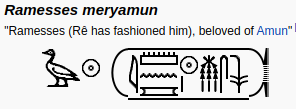
It is too easy to dismiss the humanity of those, the history of whose lives are given for our example. Sometimes our idea of when we are ready to do things doesn’t line up with God’s.
Moses tried to deliver Israel from Egypt when he was about 40 years old, young, strong, trained in the top military and diplomatic tactics of the day: he miserably failed: he gave up and lived 40 years in Midian with this guy Jethro. Jethro was a Kenite and a priest of Yahwah in Midian.
As it turns out, at least according to Encyclopedia Britannica, these Kenites were worshippers of the One God of Abraham, and strong allies for Israel. Look up this lady named Jael, a Kenite who had a serious impact on this enemy of Israel named Sisera.
According to Encyclopedia Britannica the Kenites were eventually absorbed into the tribe of Judah. So Moses marries Zipporah, one of Jethro’s daughters, who serves the One God of Abraham. This is all going down in Ethiopia – the other side of Africa from Egypt. Later Moses takes a bunch of flack about this from his older sister and brother, Miriam and Aaron, and God strikes Miriam with leprosy for her racism – Zipporah was black (Jer 13:23). God says marriage is sacred. Look it up in Numbers 12:9-14.
(1) Now Moses kept the flock of Jethro his father in law, the priest of Midian: and he led the flock to the backside of the desert, and came to the mountain of God, even to Horeb.
Moses had given up. Forget this national leadership son of pharaoh thing. Forget saving my people. Forget the dream. It’s over. I’m a failure: I’ll just spend my life here. No one gave him Prozac. He got a job herding sheep. And a wife. And two sons. And settled in a nice little community in a nice little church that his father-in-law pastored. Like most of us, content in our misery. The call to go evangelize half way across the African continent to a country where he was wanted for murder was not, shall we say, convenient.
(2) And the angel of the LORD appeared unto him in a flame of fire out of the midst of a bush: and he looked, and, behold, the bush burned with fire, and the bush was not consumed.
By the way – it was not uncommon for bushes in the desert to spontaneously combust – the interesting thing here was the bush didn’t burn up, not that it caught fire. The voice coming out of the bush was likely interesting also.
(9) Now therefore, behold, the cry of the children of Israel is come unto me: and I have also seen the oppression wherewith the Egyptians oppress them. (10) Come now therefore, and I will send thee unto Pharaoh, that thou mayest bring forth my people the children of Israel out of Egypt. Exodus Chapter 3 (KJV)
The conversation which followed, in North America today, might be something like
“What? NOW?! I mean 40 years ago I tried this and had to run for my life. Now I’m nicely settled in to finish off what is left of my miserable life with a wife and two kids relying on me for financial support and these stupid sheep and NOW you want to deliver my people, and did I mention I got sheep now?”
In the language style and tradition of that place and time, Moses just says:
(11) And Moses said unto God, Who am I, that I should go unto Pharaoh, and that I should bring forth the children of Israel out of Egypt?

A conversation ensures which requires another entire chapter. It begins with God turning Moses’ staff into a large snake, and Moses, possibly reflecting upon his reluctance to just GO when he was so instructed, finds himself drop dead terrified running away from it across the desert. Yes, and then God tells him to pick it up. By. Its. Tail.
The situation being what it was he does not argue this time and the snake returns to being a staff. He is then instructed to put his hand into his robe against his chest, and when he draws it out again it is covered with leprosy – a fatal condition from which no one had as yet ever been delivered. His hand is restored to normal healthy flesh but only after he obeys by putting it into his robe next to his chest: a somewhat non-intuitive approach to not spreading the disease.

Moses offers one more excuse, “but I am slow of speech, and of a slow tongue” and God will have nothing of it, assigns Moses’ brother Aaron to be spokesman, and tells Moses to hit the road. The conversation ended, Moses asks leave of his father-in-law but apparently he STAYS where he was until Aaron finds him and then they go together to Egypt to face Pharaoh.
The rest is history. Maybe we should just be happy we did not have to walk across Africa twice. The dream will come in its own time.